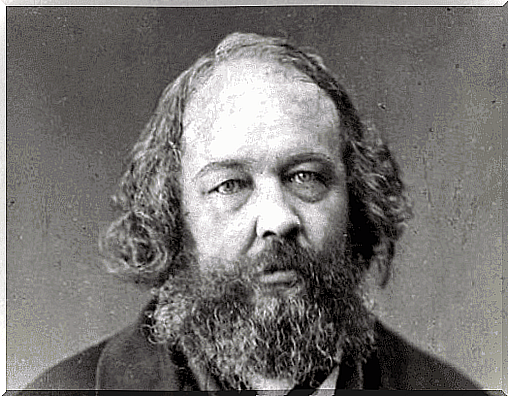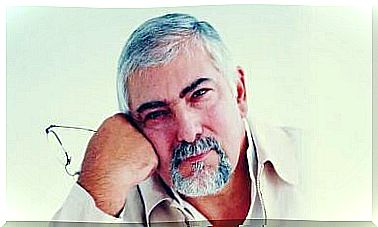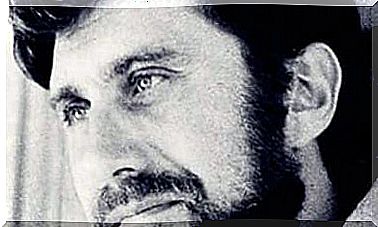Bakunin’s Phrases: A Little Big Revolution

Bakunin’s phrases scandalized his contemporaries and, strange as it may seem, continue to stupefy many. This Russian is considered the father of anarchism and one of the staunchest exponents of atheism.
Mijail Bakunin was a very sympathetic philosopher, given to friendships and bohemian life. Great admirer of Hegel and critic of the despotic actions of the Russian tsar in the 19th century. Nor was he very fond of the ideas of Karl Marx, who he considered authoritarian.
In Bakunin’s sentences there are reflections on many human realities. However, it is clear that he places special emphasis on the theme of power. Basically, it questions the power of the state and religion. These are some of his most interesting statements.
There is no infallible authority
This is one of Bakunin’s most emblematic phrases. It perfectly sums up your stance on power. It is also a statement in which he declares his eternal irreverence to all kinds of absolute authority.
If there were an infallible authority, freedom would be just a word. This infallible authority would be in charge of saying what should and what should not be done. Why use individual reason if authority holds the truth?

the plurality of gods
This is one of Bakunin’s phrases that might be a little shocking to some people. Far beyond religious convictions, what this statement proposes can be divided into two parts. In the first, it makes monotheism and absolutism equivalent.
In the second part, he talks about the contrast between good and evil as a logical and morally deplorable contradiction. It thus declares that good and evil are relative concepts that never exist in their pure state. True ethics is reflective, not preceptive.
Collective freedom in Bakunin’s phrases
In this statement, Bakunin makes reference to a fundamental fact. Freedom is a good that only exists in society. An isolated individual cannot speak of freedom, as there is no reference point in front of which to be free.
Freedom is social because power is also a social phenomenon. The two concepts complement and coexist. Someone is free insofar as there is self-determination and that this does not imply exclusion or isolation.
Another of Bakunin’s phrases about freedom
In these sentences, Bakunin insists on the collective meaning of freedom. This means that when individual freedom is based on the oppression or enslavement of others, it cannot be called freedom in the strict sense.
For someone to be fully free, there must be no restriction on the freedoms of others. In this sense, a free society is one in which everyone can make their own decisions without being subject to others.
the sacred duty
This is one of Bakunin’s phrases that conveys his philosophy of anarchism well. Contrary to what many people think, the father of anarchy was not a propagandist of disorder, but of autonomy and self-determination.
The word anarchy applies today in a somewhat confusing way. Many think it is synonymous with chaos and debauchery. In its essential sense, this stance advocates the abolition of all forms of authoritarianism.

Political freedom and economic freedom in Bakunin’s phrases
This is a nineteenth-century idea that remains in force almost two centuries later, although we are a long way from seeing its conditions turned into reality. It speaks of the profound correlation that exists between the political and the economic, particularly in terms of freedom.
Economic equality is one of the ideals of socialism. More than an absolute, it refers to the idea around the abolition of exploiters and exploited. Truly, those who depend decisively on others for their livelihoods do not have full political freedom.
a coup is a coup
This could be considered one of Bakunin’s most forward-thinking phrases. In his time, there were no socialist or communist regimes. They appeared in the world later on, though only formally on many occasions.
Bakunin goes ahead of this and questions the repression capacity of these regimes that pretend to be egalitarian. In many occasions, they are powers that act on behalf of the people, but that impose themselves in a similar way to the systems that create or maintain inequality.
Bakunin’s perspective could be more ethical than political or economic. His absolute rejection of any form of power is more ideal (utopian) than a reality that can be within the reach of peoples.
Still, it’s still interesting to read and get to know his particular way of thinking.









